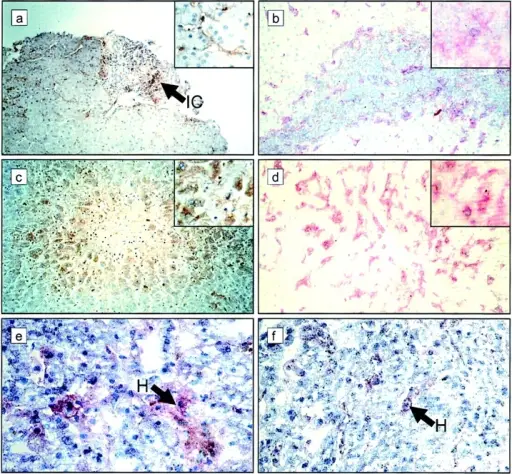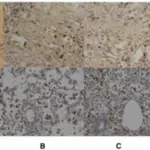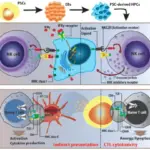The recipient’s immune system recognizes two types of antigens on the transplant: Major histocompatibility complex (MHC) antigens also known as human leukocyte antigens (HLA) and Minor histocompatibility antigens.
What is the Mechanism of Allograft Rejection?

CD40, CD40L, Fas, and FasL are increased in severe acute and chronic rejection. (a) In severe acute rejection CD40 expression was strongest in inflammatory cells (IC) and in sinusoids, which are also shown in the higher magnification (inset). (b) CD40L was confined to inflammatory cells. In chronic rejection centrilobular hepatocytes (also shown in the inset at higher magnification) were strongly positive for CD40 (c), and surrounding inflammatory cells were CD40L+ (d). Hepatocyte expression of Fas (e) and FasL (f ) was concentrated in centrilobular areas in chronic rejection. H, positive stained hepatocytes.CD40 activation induces apoptosis in cultured human hepatocytes via induction of cell surface fas ligand expression and amplifies fas-mediated hepatocyte death during allograft rejection.
Afford SC, Randhawa S, Eliopoulos AG, Hubscher SG, Young LS, Adams DH - The Journal of experimental medicine (1999). Not Altered. CC.


